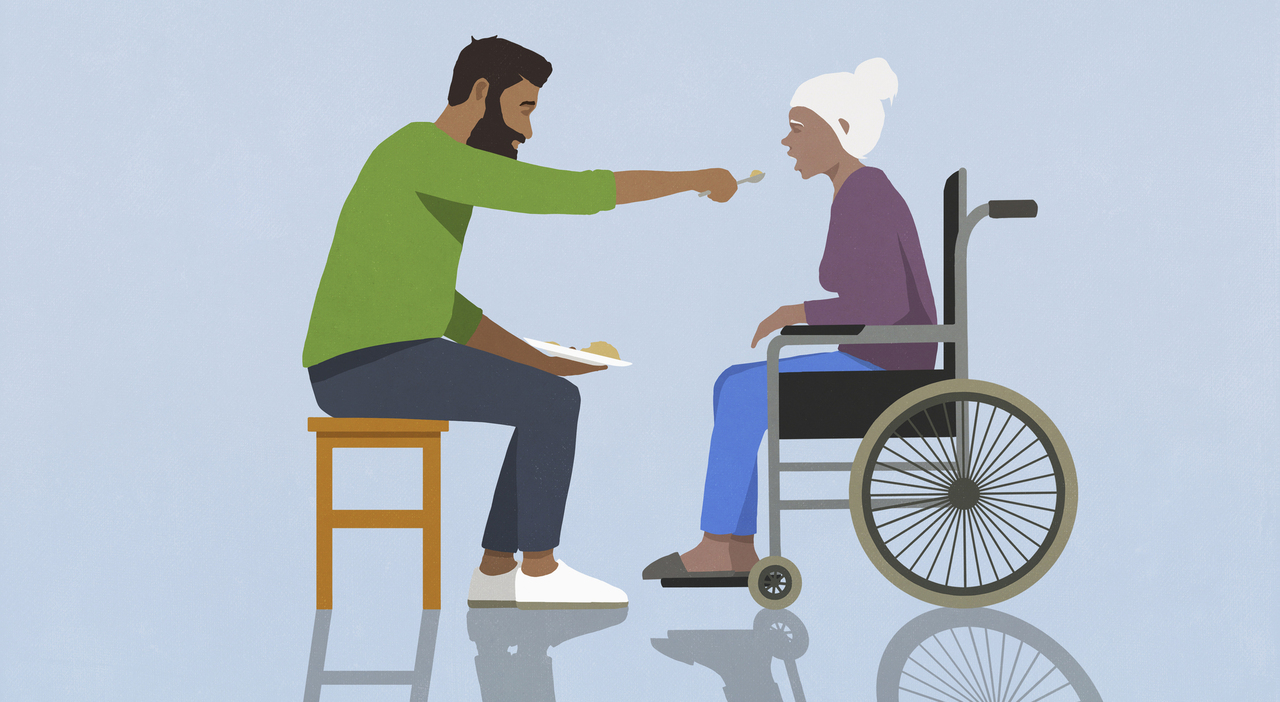We ask for greater support from social welfare services, more information on rights and benefits, psychological support. We ask, above all, that our role is finally recognized and adequately protected.
We are almost 7 million caregiver familiar or “informal”. An army of invisible people who assist a family member for free, voluntarily and continuously without having had specific training.
The activities of assistance they occupy on average around 6 hours a day and include emotional and moral support, management of the patient’s daily routine, the organization of visits and therapies and the handling of medical bureaucracy, such as disability and accompaniment procedures.
Here are some of the data that emerge from the survey The caregiver in rare diseasesoncological and chronic, created by Elma Research as part of the Caregiver, Value for Care project, promoted by AIPaSIM (Italian Association of Patients with Myelodysplastic Syndrome with the coalition of 30 patient associations active in chronic, oncological and rare diseases in partnership with Takeda Italy.
Our objective is to raise awareness of institutions, public opinion and the media on the fundamental role played by caregivers and on the urgency of providing answers to their needs, promoting their legal recognition and social and economic protection.
Starting from the results of the survey we have developed a “Position Paper” with 4-point requests from caregivers to institutions:
1) Recognize the figure of the caregiver by promoting legislative homogeneity among all the Regions, strengthening the measures that can reconcile the role of caregiver with work and family by establishing the National Caregiver Day, introducing tax incentivesflexibility at work, benefits and contributions for assistance
2) Expand access to social welfare services, guaranteeing a homogeneous network across the national territory with support services, home treatment assistance, home delivery of devices and medicines and facilitating access to services also through the digitalisation of branches
3) Promote training and information, establishing desks/info points dedicated to caregivers in different care settings (Local health authorities, hospitalsgeneral practitioners’ offices) and activate a web portal with information on different pathologies, which can direct caregivers, creating distance training courses and specific manuals 4) Provide support for emotional needs through counseling and/or psychotherapy services, listening centers for caregivers and dedicated numbers to offer psychological support.
The requests were presented to the institutions and aimed at activating actions and interventions necessary to support family caregivers.
The initiative coincides with a phase of new attention towards the world of caregivers by the institutions. As also confirmed by the recent formation of the “Technical table for the analysis and definition of useful elements for a state law on family caregivers”, on the basis of a decree signed by the Ministry of Labor and Social Policies and the Minister for Disabilities.
The data emerging from the survey is very representative of the current scenario and clearly shows how the people we prefer to call “care donors” report many needs. Among these, priority is the simplification of bureaucratic procedures, the psychological support and access to social welfare services.
We hope that political decision-makers will listen and follow up on these requests and that a series of concrete actions can be implemented to guarantee the adequate support that caregivers deserve.
*President of the Italian Association of Patients with Myelodysplastic Syndrome with thirty other associations active in chronic, oncological and rare diseases
© ALL RIGHTS RESERVED
